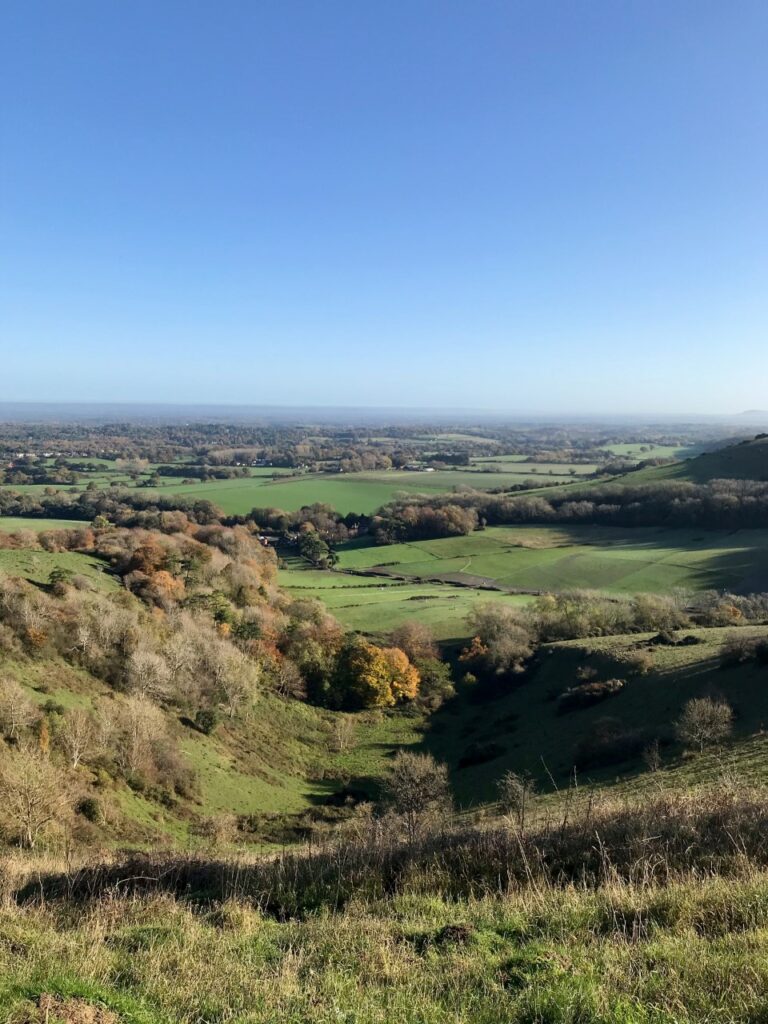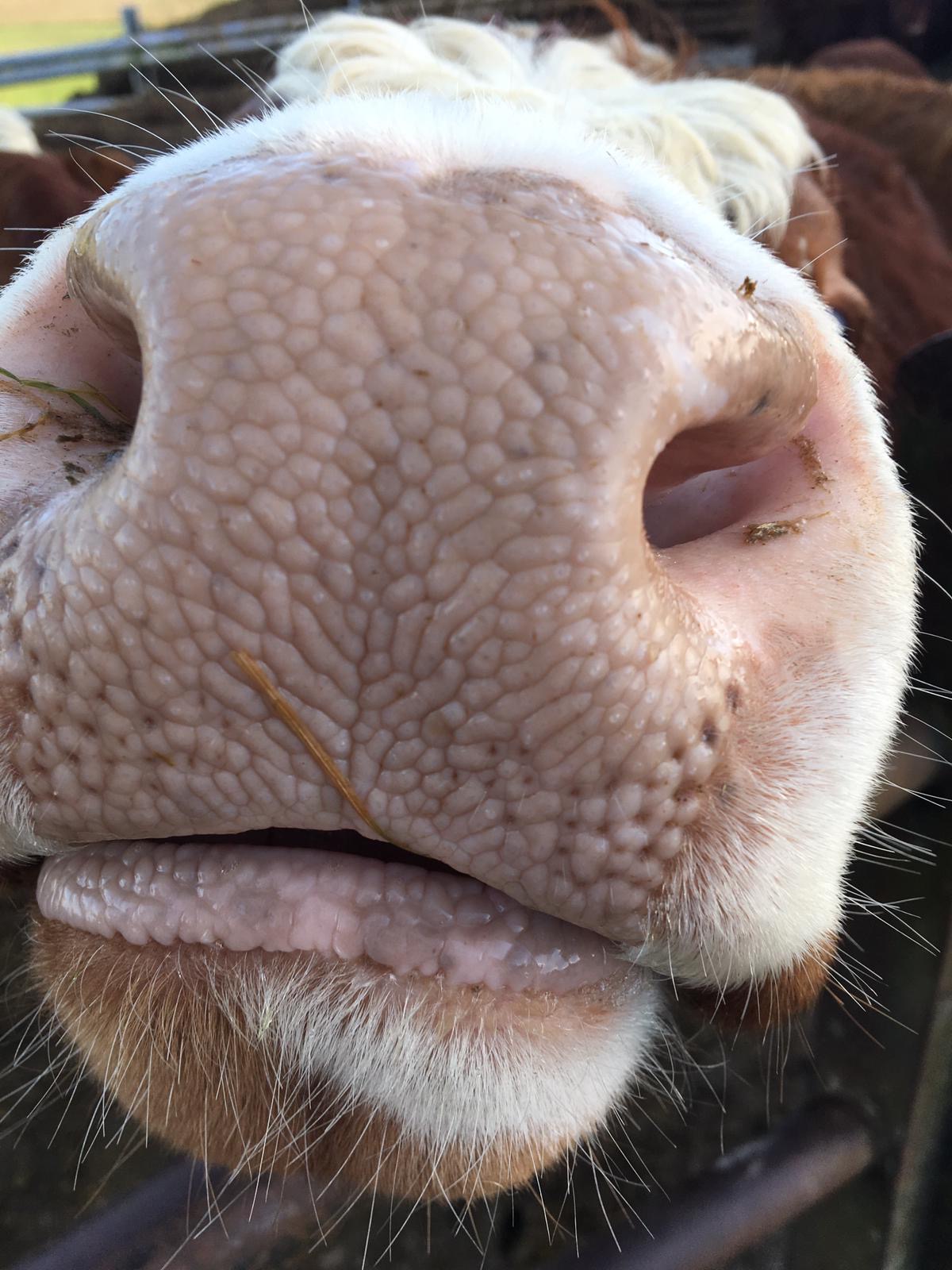All year round
Our cattle on Sullington Manor Farm are grass-fed, all year round.
All the grass they are fed on whether fresh pasture, silage or hay is grown on the farm.
The cattle in our closed herd are cross breeds between Sussex, Simmental and Aberdeen Angus.
Many stay on the farm all their lives.
Our herd
‘The mixed farm turned Britain into a premier division farming nation…And the combination it produced including – grass fed meat – were near perfect for human nutrition.’
Graham Harvey – Grass-Fed Nation.

Nutritional benefits of grass-fed beef
Luckily for us, cattle and sheep fed mainly on fresh grass produce meat with up to two thirds more omega-3 than animals fed on grain based diets. Unfortunately, when these animals are taken off grass based diets, the levels of omega-3 fall quickly. There is substantial research that indicates that omega-3 reduces risk of cardiovascular events, heart disease, blood pressure and cholesterol levels. It is important for humans to obtain equal amounts of omega 3 and omega 6.
Conjugated linoleic acid (CLA) is an omega 6 fatty acid with powerful health promoting properties and is known to be an effective cancer-fighter. It has also been shown to fight against heart disease, diabetes and obesity. The compound is present in large amounts in the meat and milk from animals grazing fresh green pasture.
Environmental benefits of grass-fed beef
Farming is crucial to the environment as healthy, grass-fed animals produce less waste and pollutants leading to reduced methane emissions and grasslands used for grazing act as a vital carbon sink, removing carbon dioxide from the atmosphere.
Mixed arable and livestock farms, as at Sullington Manor Farm, benefits wildlife and can improve nutrient use efficiency and soil structure. Mixed farms offer increased diversity of plants, insects and mobile species such as birds. Dung beetles take carbon from dung into the ground – dung from the cattle is full of insects and dung beetles.


